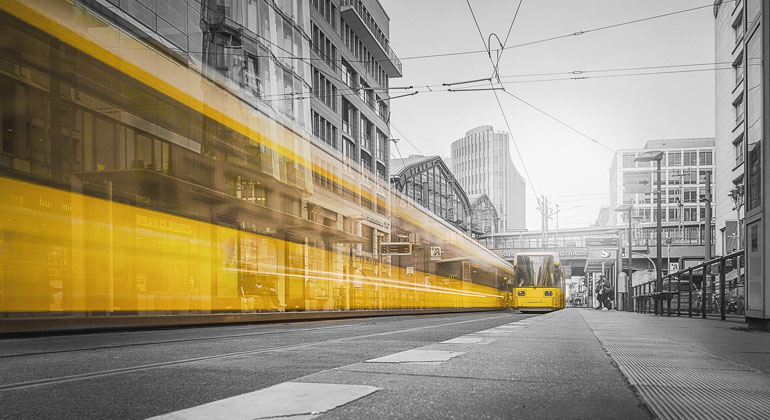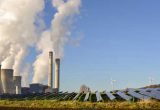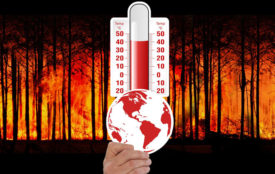Where is the traffic turnaround?
Now, at the end of August, the summer of the 9-Euro-Ticket is coming to an end. Its main goal was to encourage drivers to switch to public transport in order to protect the climate.
Did the 9-Euro-Ticket advance the transport turnaround and thus the energy turnaround?
It is clear that there can be no energy turnaround without a transport turnaround. More than 25% of greenhouse gases in this country are caused by mobility. In the social sphere, the 9-euro ticket has probably achieved its goal. Many people, mainly the socially disadvantaged, were able to travel more cheaply.
But what about the climate if even more people make the journey?
Anyone who has traveled by train in recent months knows that the trains in June, July and August were fuller than before, but were also even more delayed than usual or often cancelled altogether. On one occasion, my ICE train was delayed by 4.5 hours.
This is not how I imagine an intelligent, forward-looking change in transportation. So you want to expand public transport quickly? That would be nice.
The important Rhine Valley route that I often use, the main transport axis between the North Sea and Switzerland, has been under development for 30 years. But even today, there are sections that ICEs, regional traffic and freight trains have to share. And no improvement in sight in the foreseeable future. That’s why the transformation of transportation was and is the stepchild of the energy transition. There are political and party-political reasons for this.
The CSU provided the last three transport ministers. In reality, they were car ministers. The current Minister of Transport is the FDP. Its chairman is a Porsche driver and Porsche supporter – as is well known. So the Free Democrats are still of the opinion “Free ride for free citizens”. Unfortunately, climate destruction or traffic fatalities have to be accepted.
After all, the last grand coalition ensured that the three major areas of the energy turnaround, construction, transport and the energy industry, must achieve specially defined energy-saving targets. If one of the responsible ministries fails to meet its target, it must submit an emergency climate protection program in order to achieve the targets, at least retrospectively.
Transport is the problem child of the energy transition
For decades, transport has been the big problem child in the energy transition. While half of the electricity generated in 2022 will already be renewable, saving millions of tons of CO2, greenhouse gases in the transport sector have actually risen slightly since 1990.
The Council of Climate Change Experts has just given FDP Transport Minister Volker Wissing a very poor report card for his future goals, a straight six. According to the federal government’s plans, transport is to save 48 percent CO2 by 2030. But the transport minister’s plans are far from sufficient to achieve this.
His statements in recent weeks alone, according to a list in SPIEGEL:
- No to the speed limit
- No to a complete and rapid phase-out of internal combustion vehicles at EU level
- No to the abolition or reform of company car privileges
- No to the extension of the 9-euro ticket
An indictment of the FDP
With this FDP policy, Germany will never achieve its climate protection goals. For the Fridays for Future movement, Luisa Neubauer comments on the situation: “We are no longer talking about bad climate protection. We’re talking about refusing to work.”
Indeed: the strongest of all instincts, the instinct for self-preservation, no longer seems to work. After all, the energy transition is the question of humanity’s survival.
Source
FRANZ ALT 2022 / Translated with www.DeepL.com/Translator (free version)








